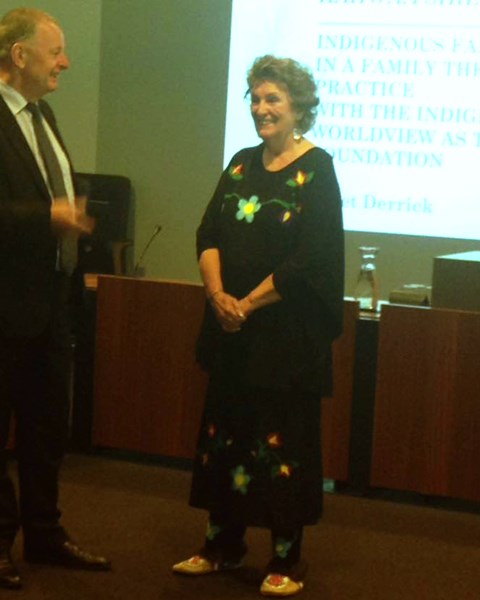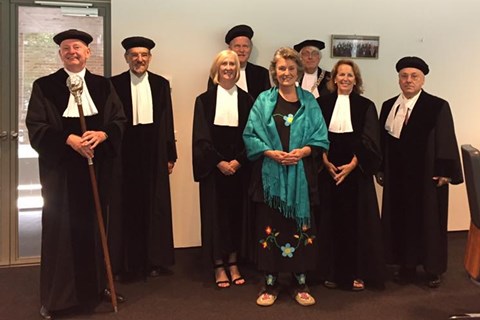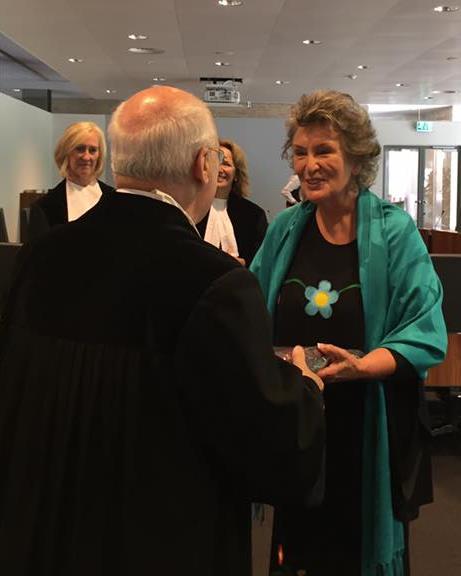Janet (Jann) Derrick
DISSERTATION TITLE:
KAHWÀ:TSIRE*: Indigenous Families in a Family Therapy Practice with the Indigenous Worldview as the Foundation.
This study creates new knowledge regarding the impact of European colonization on Indigenous (Aboriginal, First Nations, Inuit, Metis) families in Canada. It particularly focuses on the issues in families whose children were forcibly removed by the government to institutions called residential schools. Members of Indigenous families voluntarily attended a family therapy practice which utilized a family systems approach and was uniquely based in the Indigenous worldview. This worldview is spiritually centered, child based, and sees relationships as important in the family as the individuals themselves.
The study is a qualitative inquiry utilizing social construction theory that asks what might be possible when using Indigenous knowledge together with systemic family therapy to heal Indigenous families impacted by colonization and genocide. What kinds of knowledge emerged from the Kahwà:tsire family therapy practice? What culturally sensitive approaches were used? And is this model of healing transferable to other marginalized families?
The research applied reflexive analyses, both collaborative and self reflective, to analyze the results of the Indigenous methodologies applied with the families; narratives such as storytelling, performances in art, drama, music and writing, and circle format work. The therapist used a collaborative constructionist approach with the families.
The conclusions of the study named eleven meta-themes of the Indigenous families. Three meta-themes overarch the others; Trauma and Loss from Genocide, Residential School Family Trauma and Loss, and Unresolved Intergenerational Issues of Trauma and Loss. Eight meta-themes follow these; Relationship Challenges, Healing Victimized Women and Children, Healing Adult Children, Collective Anger and the Emotional Aspect, Learned Helplessness and Powerlessness, Attachment Challenges, Lateral Violence, and Decolonization as an Outcome. The basic principles of this model are described with the understanding they can be applied with other marginalized families.
The outcome of this study provides information for the healing of Indigenous families in Canada. The information supports the current desire to reclaim Indigenous cultural and family identities, and by doing so, create a change in the relationship between the colonizers/settlers and Indigenous people that will benefit everyone.
* Pronounced ‘Gah wah jud lay’. This is a Mohawk Haudensaunee word for family, and translates as ‘we are wrapped together as family’.



